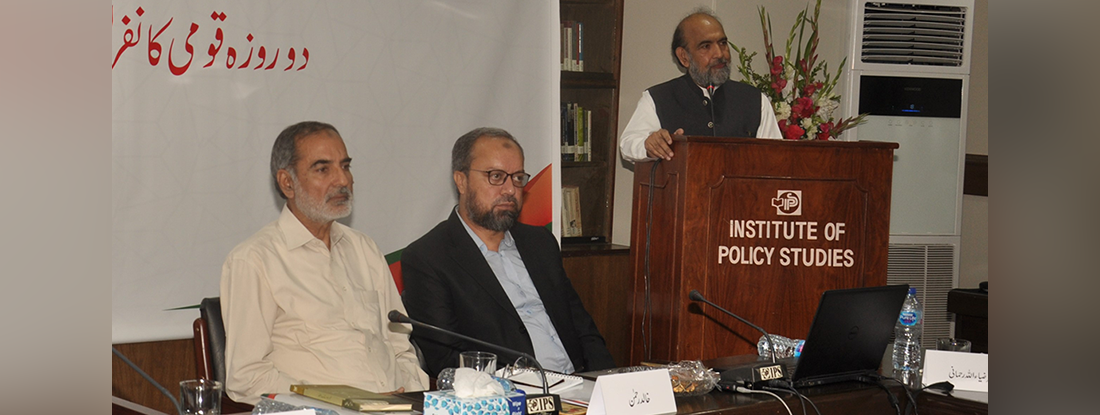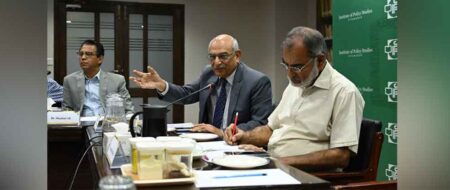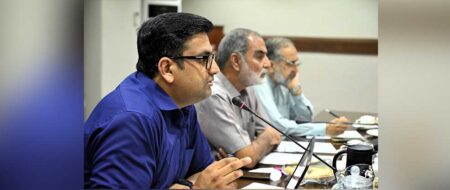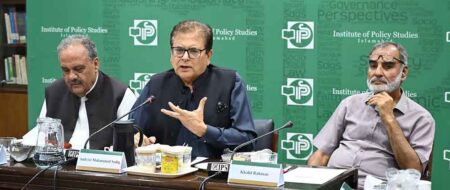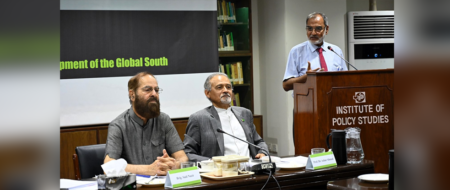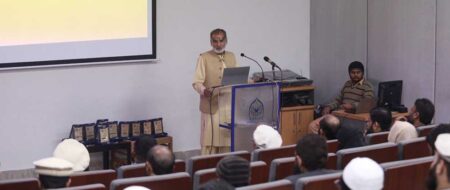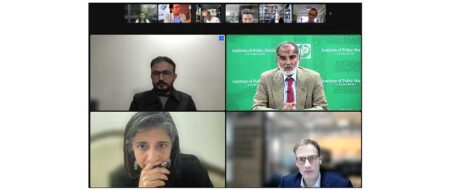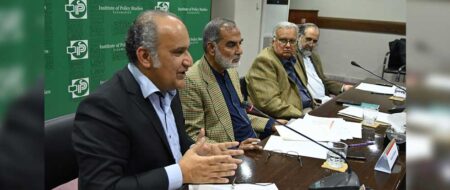Islam and Humanitarian Principles
Experts and practitioners urge improvements in international law and medical relief to address contemporary humanitarian needs
International law experts and Islamic scholars in a two-day national conference held at IPS underscored the need to revisit international laws to address humanitarian issues in conflicts and disasters of the contemporary world. They also urged adherence to humanitarian principles and medical ethics by healthcare practitioners, especially those involved in conflict and disaster relief work.
Titled ‘Islam and Humanitarian Principles’, the two days conference was jointly organized by International Committee of the Red Cross (ICRC) and Institute of Policy Studies (IPS), Islamabad on August 27-28, 2019. It was addressed by Dr Qibla Ayaz, chairman, Council of Islamic Ideology (CII), Dr Muhammad Iqbal Khan, vice chancellor, Shifa Int’l University, Dr Sohail Hasan, director general, Da’wah Academy, International Islamic University (IIUI), Islamabad, Khalid Rahman, executive president, Institute of Policy Studies (IPS), Islamabad, Dr Zia ullah Rahmani, senior program officer, ICRC, Dr Muhammad Mushtaq Ahmed, director general, Shariah Academy, International Islamic University, Islamabad (IIUI), Dr Zahid Siddique Mughal, assistant professor, National University of Science & Technology (NUST), Dr Muhammad Munir, vice president, IIUI, Dr Syed Aziz ur Rahman, in-charge, Regional Da’wah Centre, IIUI, Karachi, Abdul Shakoor, president, Al Khidmat Foundation, Dr Syed Mohammad Anwer, member, CII, Javid Gillani, director operations, Muslim Hands, Mufti Muhammad Arif, director religious affairs, Khubaib Foundation, Dr Shams ul Haq Hanif, Maulana Abu Ammar Zahid ur Rashidi, Maulana Yaseen Zafar, Dr Muhammad Iqbal Khalil, Dr Shahzad Iqbal Shaam, senior research associate at IPS, and Dr Saqib Jawwad, a civil judge.
The event had brought religious scholars, law experts, and representatives of humanitarian organizations from across Pakistan on a single platform to discuss different aspects of humanitarian principles in light of Islamic thought and jurisprudence.
Dr Qibla Ayaz, while addressing the inaugural session of the conference, viewed that the modern day humanitarian principles were actually very similar to the ideas introduced and practically implemented by Islam centuries ago. Even now, other than a very few exceptions, there were not many inconsistencies between the principles governing modern day humanitarian laws and the values taught by Islam. There were however many misconceptions prevailing about it, he added, which need be addressed by raising awareness over the matter.
Dr Rehmani opined that the principles governing the international humanitarian laws and the code of conduct offered by Islam in this regard almost go hand in hand as there were not many foundational dissimilarities among them. As a matter of fact, he stressed, the conduct upheld by Islam provides a room for further improvement in the laws. He said that it was in this light the conference was being organized, with a view to identify areas for improvements in international humanitarian law in line with the Islamic thought.
EP-IPS Khalid Rahman, earlier in his opening speech, said that the history of conflicts and natural and other types of disasters was as old as the humans themselves, and so were the efforts to prevent, avert or mitigate them. Since the purpose behind all these efforts has been to minimize the losses incurred by the calamity, it is only logical to bring gradual improvements in concerning laws and actions, as well as the principles they are based upon, in a bid to address the evolving needs.
The speakers at the conference were also very critical of the use of sensationalism in the media while reporting terror incidents, disasters and conflicts. They expressed grave concerns over the use of media as a psychological war tool in global, regional and national conflicts, maintaining that humanitarian principles should always be adhered by media organizations, especially while reporting conflicts and disasters from any area.
The conference concluded on the second day urging on the need to deal with all natural and man-made disasters in line with the humanitarian principles. It was also advised that the constitution and laws of Pakistan should consider benefitting from the basic humanitarian principles by exploring provisions to incorporate the international humanitarian law.
Click here for the conference report.


